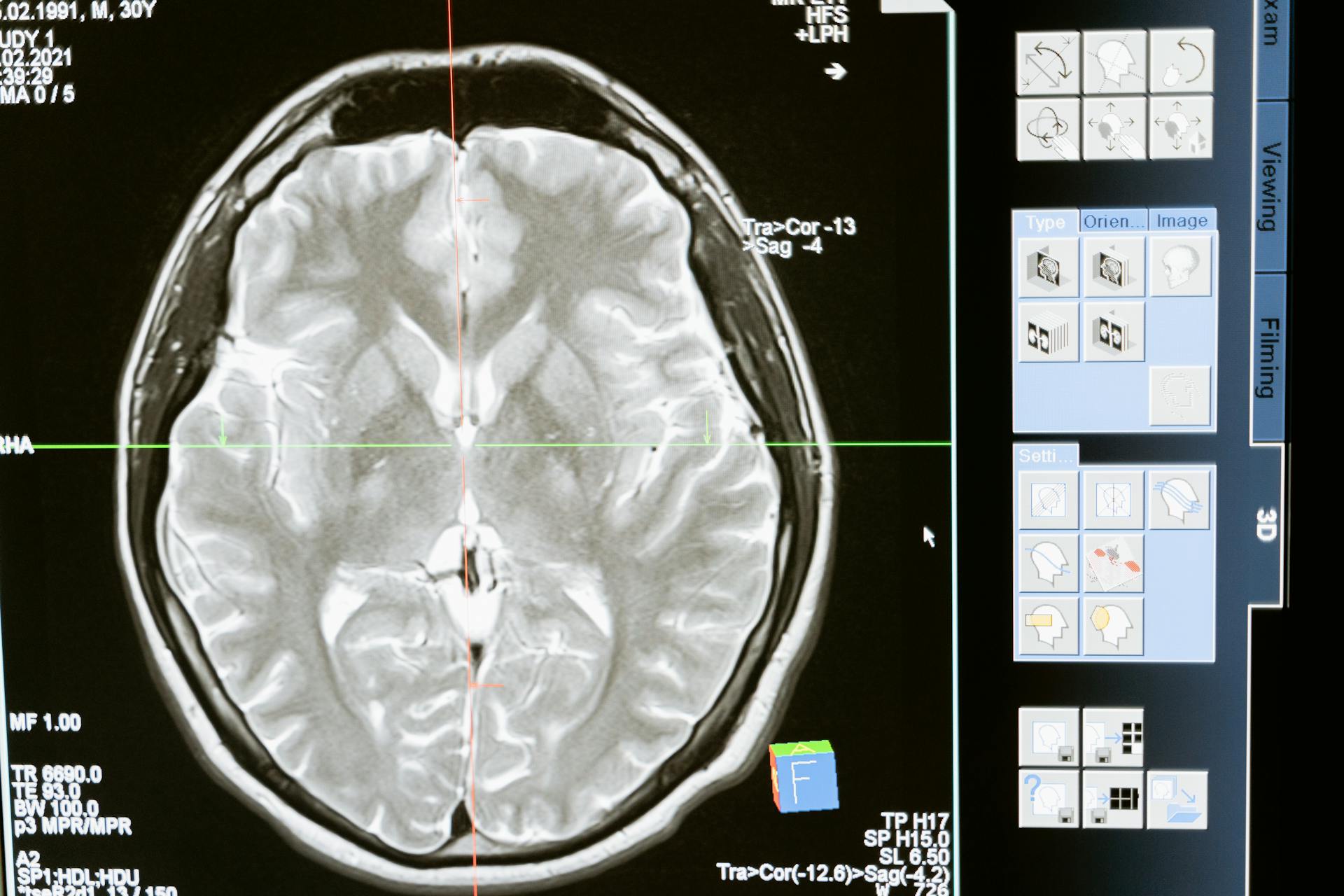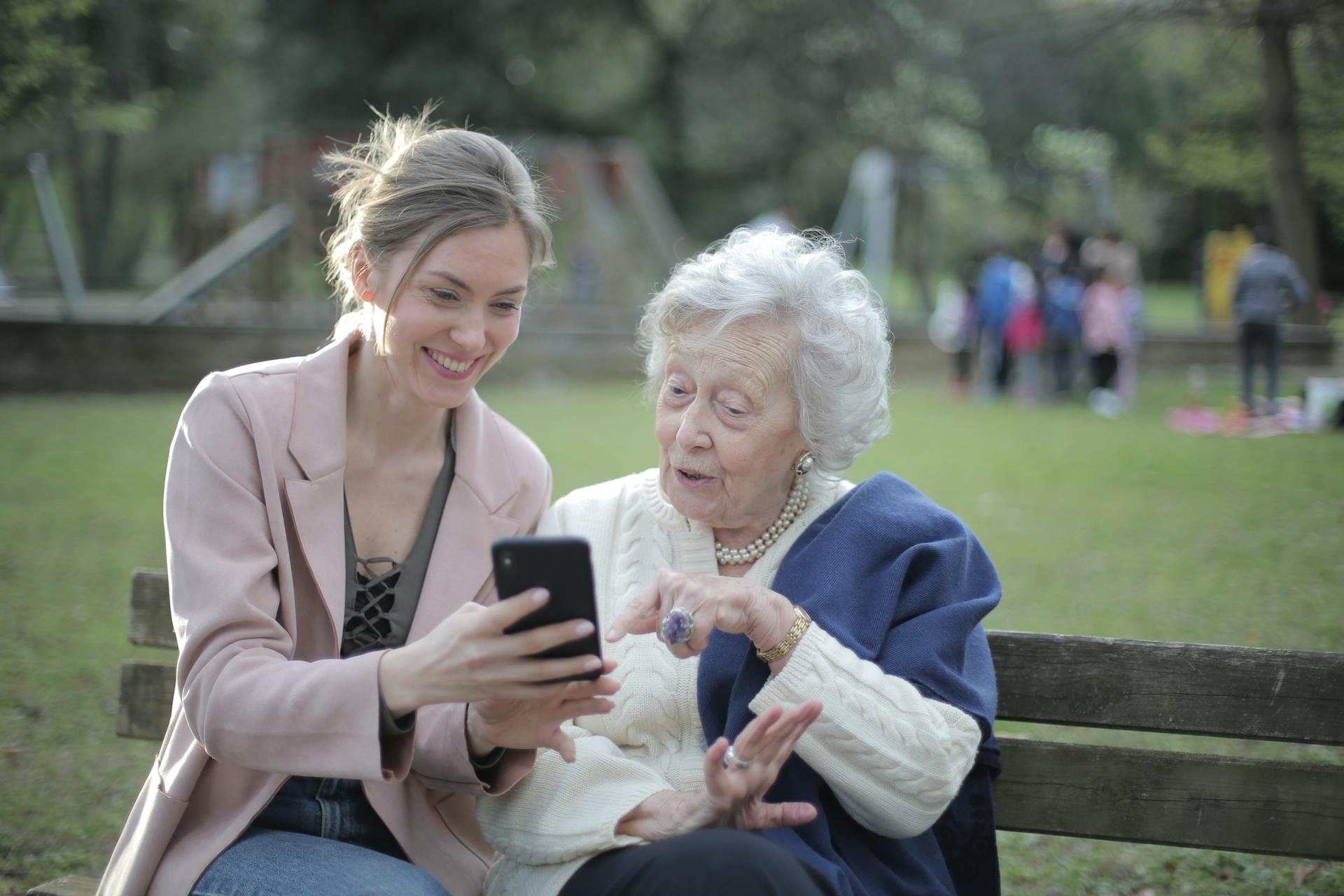
Cognitive biases that hurt relationships are an inherent facet of the human mind. They sneak up on us, often without our knowledge or consent. You might be sitting at a Sunday morning breakfast with your partner, gazing deeply into their blonde hair and thinking how much you love them. But then your phone pings with a notification and suddenly your attention is diverted to the computer screen in front of you. Spoiler alert: your cognitive biases are heavily influenced by what you see on that screen.
Computers algorithm gradually edits what we see, morphing drab and cheap items into something that makes us feel rich - voila! Suddenly that blonde-haired person at the big party seems more attractive than they did a minute ago. The computer morphs their image to make them appear more physically appealing, and our subconscious alters our perceptions accordingly.
Psychologists call cognitive biases the internal graphic design software that alters how we see the world around us. These biases steer our identities in highly predictable ways, often based on self-interest dictates. This article will explore some of the most important cognitive biases we regularly fall victim to in our relationships - though this list is by no means exhaustive. Understanding these prominent cognitive biases can help us stop lying to ourselves about why we behave in certain ways towards others, and make real progress towards healthier relationship dynamics.
Defeating Our Cognitive Biases: Is It Possible?
Cognitive biases are an ingrained feature of human nature that we cannot eliminate. However, staying aware of them can prevent us from falling victim to their triggering moments. Cognitive biases have become a catch-all buzzword to cure society's consistent state of being misled by our beliefs consistently. Unfortunately, losing control over them can lead to negativity bias, unresolved resentment, and deeper-seated insecurities.
The group-attribution bias serving as a cognitive bias is fundamentally embedded in our perception of others. People tend to date people similar to themselves (Klohnen & Casillas; Nus & Simms; Berry DS 2004), and assortative mating has been observed in newlywed couples' journal (Deal Breakers analyses). In 2001, the bad always outweighs the good review (Negativity Bias Negativity dominance) and contagion personality is an exhaustive argument (Pinker, Steven 2018 Enlightenment). However, mindfulness increases positive judgments and reduces negativity bias (Social Psychological 2008 Letting Go of Negative Automatic Thinking: Cognitive Therapy).
Incentive systems have been a famous instance where badly-structured incentives backfire (Milgram's infamous shocking experiments in his 1963 behavioral study). Perry Gina's 2013 Deception accounts for Milgram's theoretical obedience experiments. The golden parachute is a payment given to a company executive if they're forced out due to poor performance or another reason. Mass incarceration is another related bias that goes unnoticed in private prisons (Arendt Hannah 1963 Eichmann Observer Divergent Perceptions). The fundamental attribution bias aka Fundamental Attribution Error is overly simple terms stating that external factors are not considered while gender bias or group attribution bias serves as a cognitive bias.
1. Wait! Here Are 3 Ideas That Could Change Your Life
Do you often feel stuck in your current relationships? Have you ever wondered why? The answer might lie in cognitive biases. These are errors in our thinking that can negatively impact the way we perceive and interact with others. Luckily, there are ways to overcome them.
One idea is to challenge your assumptions about others. Don't judge someone based on their appearance or job title. It's easy to fall into the trap of categorizing people as a "depressed deadbeat" or a "successful executive", but this only limits your understanding of them. Instead, try to see them as complex individuals who are capable of surprising you.
Another idea is to practice empathy. This means putting yourself in someone else's shoes and seeing things from their perspective. It's not enough to just sympathize with someone; you need to truly understand what they're going through. Some important philosophers, like Aristotle and Confucius, have emphasized the importance of empathy for building strong relationships.
Lastly, try learning from others who have lived read more about these topics. There are countless books and articles out there that can help you develop your emotional intelligence and become a better communicator. One resource that I highly recommend is a free 19-page ebook called "Overcoming Cognitive Biases in Relationships". This guide provides practical tips for identifying and overcoming common biases that can harm your relationships.
In conclusion, changing your life doesn't always require massive action - sometimes it just takes a shift in mindset. By challenging your assumptions about others, practicing empathy, and learning from experts, you can improve your relationships and create a more fulfilling life for yourself and those around you.
The Reasons Behind Why Cognitive Biases Happen
Cognitive biases happen because our brains have limited resources and can't possibly evaluate every piece of information that comes our way. Instead, we rely on mental shortcuts to make judgments quickly and efficiently. These shortcuts can lead to errors in thinking and decision-making, such as confirmation bias, where we only seek out information that confirms our existing beliefs, or the halo effect, where we let one positive trait overshadow all other traits. By understanding how cognitive biases work, we can learn to recognize them in ourselves and others, and take steps to overcome them for stronger relationships.
Easily Fooled? Understand the Availability Heuristic
Understanding the Availability Heuristic is crucial if you want to avoid being easily fooled. This mental shortcut is designed to help us determine risk based on examples readily available in our minds. For instance, when we hear about car thefts or plane crashes through news reports, we tend to overestimate the likelihood of these events happening based on their vividness and emotional impact.
However, this mental shortcut can lead to poor estimates and bad decisions. For example, many people are afraid of flying because they have heard of plane crashes but ignore the fact that driving a car is statistically more dangerous. Similarly, some might believe that smoking-related illnesses are rare because they don't personally know many people who have been affected by them, even though statistics suggest otherwise.
This cognitive bias can also affect our understanding of health risks such as breast cancer. When we hear about someone we know being diagnosed with it, we might assume that it's more common than it actually is. It's important to be aware of the availability heuristic and take steps to overcome it, such as seeking out more diverse information sources and considering statistical evidence before making conclusions or decisions.
Ways Our Brain Tricks Us: Cognitive Biases Explained

Cognitive biases are ways our brain tricks us into thinking and behaving in certain ways, often without us even realizing it. These biases have a powerful influence on our relationships, causing misunderstandings and conflicts that can be hard to resolve. By understanding these cognitive biases and being aware of how they affect our thoughts and actions, we can work to overcome them and build stronger, healthier relationships.
Uncovering the Truth Behind the Self-Serving Bias
The self-serving bias is a cognitive bias that leads people to attribute their successes to internal factors, such as their own abilities and talents, and their failures to external factors, such as bad luck or other people's actions. People tend to use this bias in many aspects of life, from school grades to athletic performance. They credit themselves with good grades by attributing them to studying hard and working hard. On the other hand, they may blame bad grades on external factors such as faulty attributions.
However, this self-serving bias can be harmful in relationships because it can lead one partner to take all the credit for the relationship's success while blaming the other partner for anything that goes wrong. In reality, things turn out well when both partners work together towards a common goal. The self-serving bias can ruin relationships by causing one partner to feel undervalued and unappreciated.
Factors age also play an important role in this cognitive bias. Studies have shown that older people are more likely to use the self-serving bias than younger people. This could be because older people are more concerned about protecting their self-esteem and are less willing to take responsibility for their actions. Therefore, it is crucial for individuals of all ages to recognize this bias and take steps towards avoiding it so that they can build healthy relationships based on mutual respect and appreciation rather than faulty attributions.
The Positive Perspective: Understanding the Optimism Bias

The optimism bias is a cognitive bias that makes people believe that good things are more likely to happen to them than negative events. This bias affects our lives essentially, making us feel happier and more secure about the future. Even when faced with negative events such as job loss or health risks from smoking and eating poorly, people tend to believe that these things are less likely to happen to them than the general population.
The optimism bias is closely related to the availability heuristic, which leads people to overestimate the likelihood of bad things happening based on how easily they can recall negative events. However, while this bias can sometimes lead people to take unnecessary risks such as not wearing a seat belt or ignoring bad news, it can also be incredibly helpful in coping with difficult situations. By focusing on good news and staying optimistic about the future, the optimism bias helps create a positive outlook that can keep us motivated and hopeful.
In conclusion, while cognitive biases like the optimism bias can hurt relationships by causing misunderstandings and unrealistic expectations, understanding this bias can help us appreciate its positive aspects. By recognizing how our brains work, we can learn to recognize when we are being overly optimistic and adjust our expectations accordingly. Ultimately, embracing a positive perspective on life helps us face challenges with resilience and hope for the future, giving people an essential tool for living happy and fulfilling lives.
Uncovering the Truth: The Impact of Misinformation
Misinformation has a profound impact on our lives. The misinformation effect refers to the phenomenon in which people's memories or recollections of an actual event are heavily influenced by subtle influences they were exposed to after the fact. For example, if someone watches television coverage of a car accident, they may remember details that weren't actually present during the event. This can lead to confusion, misunderstandings, and even false accusations.
The human mind is surprisingly susceptible to these subtle influences. Even when something seems crystal clear at first glance, it's important to remember that our brains are constantly processing information in complex ways. When we talk about an event with others or consume media coverage of it, we're unwittingly exposing ourselves to additional layers of interpretation and bias that can warp our understanding of what really happened.
Ultimately, the impact of misinformation goes far beyond just one event or conversation. It can erode trust between individuals and communities, lead to misinformed decisions and policies, and create a sense of chaos and uncertainty in society as a whole. That's why it's so important to be aware of cognitive biases that hurt relationships and actively work to counteract them whenever possible. By staying informed, questioning assumptions, and seeking out multiple perspectives on any given issue, we can begin to combat the negative effects of misinformation and build a more honest and resilient society for all.
1. Classic Memory Research
Memory is a complex process that can be influenced by many factors. One classic experiment conducted by memory expert Elizabeth Loftus people to watch a car crash and then ask them if they saw broken glass on the ground. Even though there was no broken glass, many participants reported incorrectly seeing it. This study shows how our memories can be altered by outside influences.
Another example of how memory can be affected is in cases where older memories are mixed with new information. People may think they remember what happened in a certain situation, but they could be incorrectly identifying details or even the wrong suspect in a criminal case. Understanding these cognitive biases is crucial for healthy relationships, as it helps us to communicate more effectively and avoid misunderstandings caused by faulty memories.
How Your Decisions May Be Affected by Anchoring Bias

Anchoring bias can influence estimates and decisions in many areas of life. Essentially, anchoring bias is when we are overly influenced by a number voiced or otherwise presented to us. In price negotiation, for example, the first price offered is often the anchor point that subsequent prices are based on. This type of bias can also be seen in completely unrelated topics such as diagnosing patients.
This cognitive biases anchoring can lead to poor choices as the anchor information may not be fully understood or accurate. For instance, if a random number is presented as an "expert" opinion, it may incorrectly influence subsequent diagnostic assessments. Research suggests that even highly trained professionals such as doctors and judges can fall prey to this bias.
One way to counteract anchoring bias is to consciously consider alternatives and seek out multiple sources of information. By doing so, you can avoid being swayed by an initial anchor point and make better informed decisions. Additionally, it's important to recognize when cognitive biases like anchoring may be at play and take steps to minimize their impact on your thinking.
How Our minds Trick Us: Understanding the Confirmation Bias
Confirmation bias is a cognitive bias people tend to have where they favor information that confirms their existing beliefs. Examples include paying attention only to news articles that support gun control or global warming, choosing news sources that present stories from one side of an issue, and ignoring opposing views. This bias helps protect self-esteem by making people feel like their existing point of view is validated.
However, confirmation bias can lead to poor choices and othering people who don't share our opinions. When we only seek out information that supports our beliefs, we limit our mental resources and miss out on valuable perspectives. We may also dismiss opposing side's arguments without considering them in a rational manner.
To overcome confirmation bias, it's important to be aware of it and actively seek out opposing views. By exposing ourselves to different perspectives, we expand our mental resources and make decisions based on a broader range of information. It also helps us avoid making people feel excluded or ignored just because they don't share our views.
Uncovering the Magic Behind the Halo Effect

The halo effect is a cognitive bias that can have a powerful impact on our real-world relationships. It involves holding contradictory beliefs about someone based on our initial impression of them. The physical attractiveness stereotype is one example - we tend to assume that attractive people are smarter, kinder, and generally better than those who are less physically attractive.
This good principle can lead us astray when it comes to thinking about people or products marketed through their appearance. For example, an attractive political candidate may be perceived as more competent and smart simply because of their looks - even if they lack experience or qualifications. Similarly, job applicants who are perceived as attractive may be given preferential treatment over those who are equally or more qualified but don't fit into the "attractive" category.
Understanding the halo effect helps people avoid experiencing cognitive dissonance - the discomfort that arises when we hold two conflicting beliefs at once. By acknowledging this bias and consciously working to overcome it, we can make better decisions and build stronger relationships with others in our personal and professional lives.
Listen Up: Some Tips from Verywell
Cognitive biases are errors in thinking that can affect our judgment and ultimately decision making. Biases collectively influence poor decisions, leading to problems in relationships. A literature review conducted by Lee KK et al. highlights some common cognitive biases that hurt relationships, including hindsight bias, anchoring bias, and the misinformation effect.
Understanding bias is key to reducing its impact on our decision making. One indirect debiasing method priming suggests that focusing on a target attribute reduces judgmental biases. Another study by Ruff CC and Tobler PN found that behavioral account of cognitive control theoretical bases paradigms could help reduce gender differences in brain activity during conflicts based on personal risk perceptions.
In addition, Loftus EF's research on leading questions and Boo HC's work on equivalence training suggest ways to avoid the idea of false memories. Harper DN and Challies DM Hunt's study also emphasizes the importance of implicit self-esteem plos in relationship conflicts. By clicking accept, you can enhance site navigation analyze site usage, which helps with marketing efforts as well as personal growth!
Different Types of Cognitive Bias You Need to Know

Cognitive biases are the errors in judgment that people tend to make because of their innate mental shortcuts. These shortcuts can lead us astray, and as a result, cognitive biases can have a negative impact on our relationships. Here is a partial list of some common cognitive biases: confirmation bias, hindsight bias, sunk cost fallacy, availability heuristic, and status quo bias.
The status quo bias reflects our tendency to prefer things the way they are instead of making changes. This particular cognitive bias can hurt relationships because it prevents couples from addressing problems or making improvements. They may be comfortable with the current situation but ignoring issues can lead to bigger problems down the road.
Humans perceive patterns where there are none and tend to attribute random occurrences to specific causes. This is known as the gambler's fallacy or clustering illusion. In relationships, this cognitive bias can cause one partner to believe that their partner's actions are deliberate when they might be entirely coincidental. This misinterpretation could lead to misunderstandings and ultimately harm the relationship.
Frequently Asked Questions
Is Your bias keeping your marriage in the dark?
Your biases may be affecting your marriage, as they can prevent you from seeing your partner's point of view and create unnecessary conflict. It's important to recognize and work on these biases to improve communication and strengthen your relationship.
What happens when negativity bias is left unchecked?
When negativity bias is left unchecked, it can lead to a cycle of negative thinking that reinforces itself, making it harder to see positives in situations and causing increased stress and anxiety.
What are the 5 types of bias?
The 5 types of bias are confirmation bias, availability bias, hindsight bias, anchoring bias, and self-serving bias. Each type can impact decision-making and perception in different ways. Understanding these biases can improve critical thinking skills and reduce their effects.
Are cognitive biases damaging your relationships?
Yes, cognitive biases can damage relationships by causing misunderstandings and miscommunications. Being aware of your own biases and actively working to overcome them can lead to healthier and stronger relationships.
What would be considered a cognitive bias?
A cognitive bias is a systematic error in thinking that affects judgments and decisions. Examples include confirmation bias, where we seek out information that confirms our beliefs, and availability bias, where we rely too heavily on easily available information.
Featured Images: pexels.com


